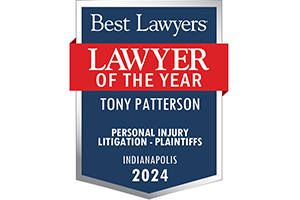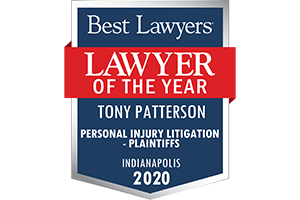Overweight Trucks
Indiana Personal Injury Law
The Indiana truck accident lawyers at Parr Richey Frandsen Patterson Kruse LLP provide award-winning service to personal injury victims everywhere. With offices in Indianapolis and Lebanon, our firm draws from over 75 years of combined legal experience to defend your rights. In business since 1899, Parr Richey Frandsen Patterson Kruse LLP is dedicated to helping clients recover the verdicts and settlements they deserve.
Overweight or Overloaded Trucks
Over half a million overweight trucks traverse the nation’s roads and bridges every year. Commercial vehicles marked with “Wide Load” signs cross interstates carrying everything from seeds and concrete to hot oil and waste. Each state is allowed to issue a certain number of permits for overloaded trucks, sometimes up to 50,000 per year. The vast majority of states issue yearlong permits; only 10 states limit short-term permits to days or weeks. In all, more than 1.8 million permits for overloaded trucks are issued each year. Many more go unreported.
Weight Dangers
Federal laws regulate the weight limit for trucks on all interstate highways, but each state permits vehicles to exceed that amount if they carry a permit. The maximum load is generally 40 tons, with some states allowing trucks as heavy as 90 tons. Limiting truck weight is important to preventing damage to infrastructure and lives. Some risks of overloaded trucks include:
- Rollovers
- Cargo spills
- Falling debris
- Chemical leaks
- Imbalanced loads
- Runaway trailers
- Collapsing bridges
- Wear and tear on tires
- Road or highway wear
- Longer stopping distances
- Unsafe air pressure, compression
Engineers warn that the growing practice of allowing overweight trucks severely weakens steel and concrete, placing undue burden on America’s already suffering infrastructure. Overloaded trucks are suspected of contributing to the 2007 Minneapolis bridge collapse that killed 13 people. Overweight rigs may pass without issue, but still cause significant cumulative damage.
Physical Injury
With 73,000 U.S. bridges categorized as “structurally deficient” and insufficient money to fix damaged roads, drivers are placed at higher risk of danger. Moreover, while damage to infrastructure is gradual, everyday accidents involving overloaded trucks are sudden. Overweight trucks are exponentially more likely to cause traffic accidents involving:
- Burns, scars
- Broken bones
- Organ damage
- Crushing injuries
- Internal bleeding
- Exposure to toxins
- Spinal cord damage
- Paralysis, paraplegia
- Cognitive impairment
- Traumatic brain injury
- Permanent disfigurement
Even assuming pavements and bridges were up to code, related damages increase exponentially with heavy loads. Increasing the standard 80,000-pound load to 108,000, for example, increases road and truck damage by 220 percent. Compared to large trucks and hard roads, the injury to the human skeleton is many times worse. These accidents are often fatal.
Liability for Overloaded Accidents
When truckers and the companies that hire them fail to act with reasonable care by overloading their vehicles and someone is harmed as a result, they may be liable for negligence. Injured victims and family members may be entitled to recover compensation for lost income, medical or funeral expenses, pain, suffering, and other benefits after a crash. Drivers, manufacturers, insurers, and other entities may all be responsible for damages caused by overloaded trucks.
Recovering Compensation for Injuries
If you or a loved one were hurt by an overweight truck, the Indiana personal injury attorneys of Parr Richey Frandsen Patterson Kruse LLP are here to help. For over 40 years, we have concentrated our practice on personal injury law, and helped truck accident victims seek maximum compensation for their losses.











